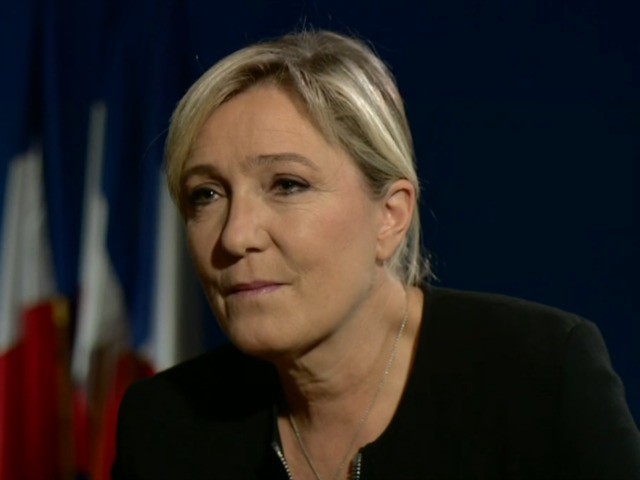Asserting that a “global revolution” is underway, Marine Le Pen has said Donald Trump’s victory at the polls marks the rejection of “unfettered globalisation”, in an interview with the BBC.
Speaking on the Andrew Marr show, Le Pen said the outcome of the US election paves the way for other countries to reject the dictates of a distant and complacent elite.
“Clearly Trump’s victory is an additional stone in the building of a new world destined to replace the old one”, the Front National leader said, linking the Republican’s win at the polls to Brexit, and France’s rejection of the EU Constitution in a referendum held in 2005.
“All these elections are essentially referendums against the unfettered globalisation that has been imposed upon […] people and which today has clearly shown its limits.”
Trump’s win “made possible what had previously been presented as impossible. This is really the victory of the people against the elites”, Le Pen said, adding: “[This] is a global revolution.”
Expressing hope that the political bloc’s days are numbered, the French presidential candidate said: “How long can a political system last even though it’s not elected and is working against the will of the people it’s trying to rule? In a democracy it shouldn’t last for more than two minutes.”
Noting that the EU is un-elected, and asserting that it is “working against the will of the people it’s trying to rule”, Le Pen said the body “shouldn’t last for more than two minutes” in a truly democratic society.
Asserting that the EU is moving ahead in a “totalitarian way”, the populist icon said she is “absolutely convinced” that Europeans would reject the direction in which the supranational body is heading, if asked in a popular vote.
Comparing Brussels existence to that of the Berlin Wall, Le Pen argued that if such a vote were to take place, the EU’s “oppressive model” would dissolve but “the Europe of free nations will be born.”
Le Pen hit back at Marr’s suggestion that the Front National is an irredeemably racist party, asking the veteran broadcaster: “What sentence or proposal in the National Front’s program is a racist proposal?
“Elites wish to [say] and have done for a long time that all those who are opposed to the process of mass immigration are racists”, the presidential candidate said, and outlined her opposition to this narrative.
“I don’t think it’s racist to say that we cannot take in all the poverty of the world… because our first obligation is to protect the French people”, she told the BBC presenter.
Asked whether Muslims can be “full citizens” in France, Le Pen said while she believes France is “full up” and cannot absorb more waves of migrants, she doesn’t judge people on their religion and is far more concerned over whether citizens value the rule of law and secularism in the country.
Affirming her personal commitment to the separation of church and state, and describing it as “part of France’s identity”, the Front National leader said her party judges people on their respect for French values but “never based on their religion”.
“For me, if some people refuse to accept the French constitution, or to comply with French laws, if they refuse to comply with our codes, our values, our French lifestyle — well, we’ll act accordingly”, she explained.
The French politician told the BBC there is “no reason to be scared of Russia”, and described it as another European country, adding that historically the state enjoyed a relationship with France based on friendship and trade.
Dismissing claims made by Marr that Russia is “trying to destabilise the West in a dangerous way”, Le Pen pointed out that it is the US who has been “very aggressive” towards Russia.
This, she argued, is because “the model that is defended by Vladimir Putin is radically different to that of Mr Obama.” Le Pen characterised Russia’s style of government as looking after the country’s interests and defending its identity.
The Front National leader’s BBC appearance was picketed by a group of far left protesters, who demanded the public broadcaster give her no platform despite wide popularity among the French electorate.
